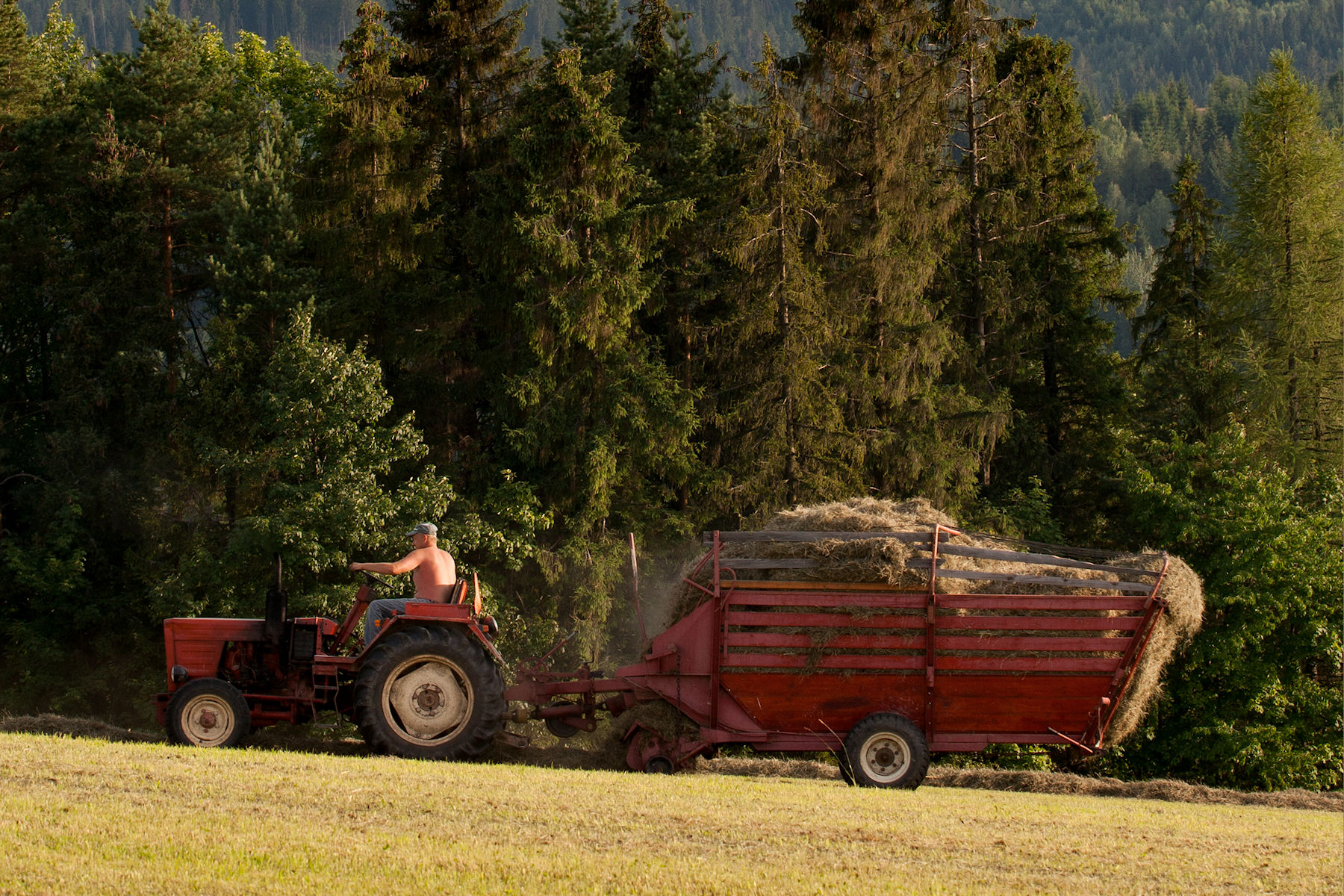Many Polish motorists were happy when the state-owned fuel company Orlen dropped the prices at the pump. The move was clearly an attempt by the ruling conservative PiS party to win votes. But in the villages – where PiS normally has strong support – it turned into anger as farmers could hardly get fuel while they need it the most.
Featured image: A Polish farmer in Łapszanka, near the Slovakian border (Photo © Marcel Burger)
To the astonishment of many in Poland fuel prices at the petrol stations suddenly dropped and were heading back to the levels pre-Covid from the beginning of September. But as more media started reporting on it, it came to light it was not a question of supply and demand. It was a government controlled incentive to make voters happy ahead of the 15 October national elections in Poland.
The price-drop by state-owned Orlen – which is with 50% share market leader in Poland – made the competition follow suite. But the Orlen leadership knew it was not going to be an easy ride, as problems with a fuel supplier were starting to emerge. In an e-mail of the beginning of September, that leaked to the media, the leadership asked its petrol station managers to tape off pumps with Malfunction when running out of fuel. From the third week of September pictures started to emerge on social media of fuel pumps taped off, triggering memories of Communist times in Poland when the government lied about the real reason of shortages of basically everything.
Farmers were hit hard
Meanwhile for farmers the drop in oil prices caused a side-effect. As fuel shortages were leading to pumps to shut down, whole-sale prices of fuel went up. And it are those prices farmers normally buy their needs. Now the farmers faced higher costs and difficulties in getting fuel during one of the most important times of the year, the autumn harvest needed before winter falls.
The Ukrainian grain deal connection
What was meant to help the conservative PiS party gaining votes, quickly turned into the party losing face in the rural areas where it has its strong base. In a twist to regain votes, the Polish government refused to help Ukrainian farmers get their harvests across the border. The Ukraine export was meant from the beginning to support Ukraine and help the world population, but instead of reaching the international market large chunks of the Ukrainian products were dumped on the Polish market by wholesalers at a price lower than the Polish agricultural produce. This meant loss in income and market for many farmers.
The way out finally came when Lithuania stepped in. To by-pass Poland, the Baltic state now opens up to grain imports to be checked and exported through Lithuanian sea ports to the world. As the deal, announced on 2 October, includes transport of Ukrainian produce through Poland, it remains to be seen if nothing “falls of the wagon” and lands on Polish markets. | © 2023 Marcel Burger, nordicreporter.com
